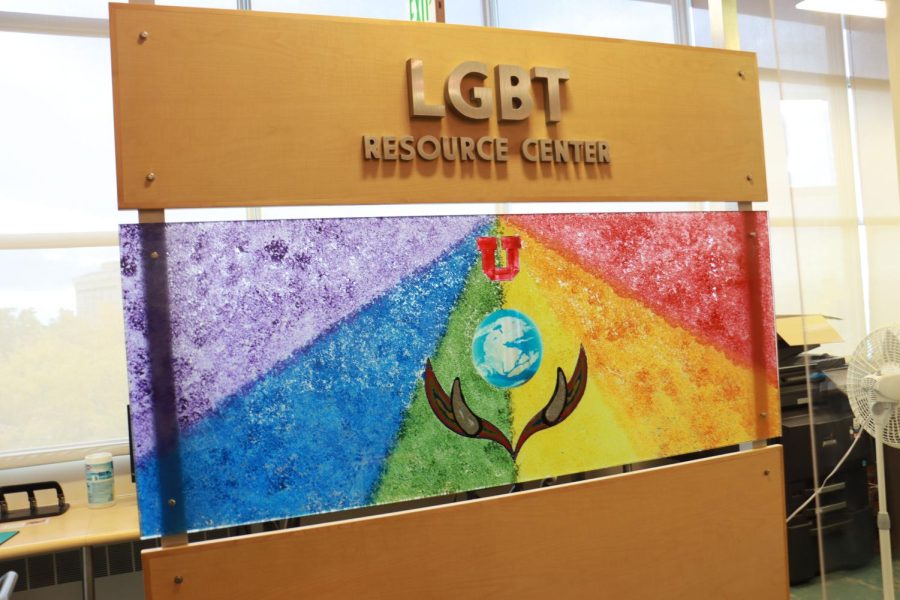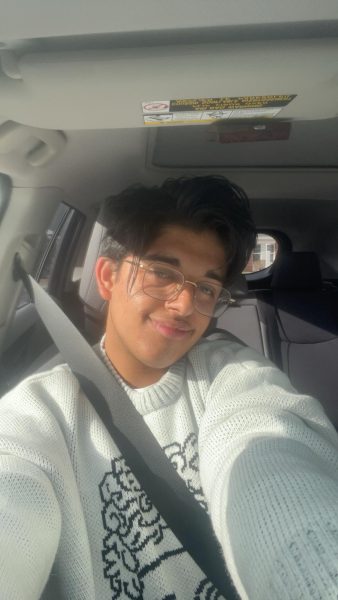When HB261 was passed Jan. 30, 2024, student leaders like Alisi Fihaki, president of the Pacific Islanders Student Association (PISA), began to worry about the future of their clubs.
“That’s when everything started to crumble,” Fihaki said.
The bill was titled “Equal Opportunity Initiatives” and aimed to help “all Utah students succeed regardless of their background,” according to Gov. Spencer Cox.
HB261 aimed to repurpose funding given to education programs that funded diversity, equity and inclusion. It challenged various centers at the University of Utah promoting DEI, such as the Center for Equity & Student Belonging, the LGBT Resource Center, the Black Cultural Center, the Black Student Union, the Women’s Resource Center, the Pacific Islanders Student Association and the Asian American Student Association.
The bill passed in January 2024, but implementation was set for July 1, 2024. In the time leading up to the implementation deadline, the U released several statements under the tag HB261 in their newsletter, @theU. These statements said the university would be working with the Utah System of Higher Education to allow student centers to continue their work “within the law.”
Spring 2024: Initial Promises
During the period before the implementation deadline, the U conducted several meetings with members of the affected centers and organizations that promoted DEI. The organizations initially expressed confusion and fear surrounding loss of funding of the centers that they utilized.
“February, I was in back-to-back meetings with the other Center of Equity and Student Belonging organizations,” Fihaki said.
Fihaki said that during these meetings, the U would give many “reassurances that we would maintain our funding.” These assurances were made from February through June 2024.
Nevaeh Parker, president of the Black Student Union (BSU), echoed this sentiment.
“We weren’t told exactly how much we would get, but we were told that we would have a budget to work with,” Parker said.
The student leaders said funding provided to their organizations by the university was crucial for their events, particularly for their recruitment events such as high school conferences.
“We used to be sponsored and receive $11,000 a year in funding, which largely went to holding our high school conferences to recruit, largely people from underprivileged communities, like on the west side,” Alex Tokita, president of the Asian American Student Association (AASA), said.
The U ultimately made a plan that would close and move cultural centers originally under DEI to the Office of Student Affairs. In meetings with the university, Fihaki said the guidelines did not say these centers would be closed.
New Limitations Under HB261
According to the Utah System of Higher Education’s guidance, “Student organizations operating as formal administrative units are subject to the provisions of HB261,” meaning sponsored student organizations had to meet the conditions outlined by HB261 to maintain university sponsorship.
Fihaki said certain words and topics such as anti-racism, implicit bias, critical race theory and race privilege could no longer be used by their club.
“We all have academic and free speech, and that’s a right that we all should have,” Fihaki said.
Parker said sponsored organizations had to share all communications with the university to comply with the bill. The affected organizations found it difficult to comply with these conditions, leading them to question if sponsorship was worth it.
Summer 2024: Student Centers Shut Down
At the end of June 2024, the university shut down several student resource centers: the Center for Equity and Student Belonging, LGBT Resource Center and Women’s Resource Center. These centers were reorganized into two new centers: the Center for Student Access and Resources and the Community and Cultural Engagement Center.
“It was very disappointing that it happened during the summer when the majority of the students were away from campus. And the fact that the university was very unprepared, or at least in a sense that we were unprepared for this, it was very unexpected and disheartening,” Tokita said.
Throughout the summer, organizations received little to no communication about what would happen with their funding and were confused about what was going to be given by the U.
Tokita said there were a lot of unknowns and the U was still trying to figure out how HB261 would affect the university.
Fihaki said due to the unpredictable nature of the funding, the limitation of certain words related to anti-racism and the unsafe environment created by the bill, PISA decided to withdraw from sponsorship on Aug. 1, 2024. This was done before Student Affairs announced to the organizations that sponsored clubs were not able to receive funding.
When informed about the loss of funding on Aug. 7, 2024, BSU decided to keep their sponsorship due to their event Soul Fest, which was a collaboration between the Union Programming Council and BSU.
“We thought that the good outweighed the harm in this situation and we can sacrifice our freedom to speak freely on our Instagram if we’re able to make events like Soul Fest happen,” Parker said.
For AASA, no longer having funding prompted them to withdraw their sponsorship.
“There wasn’t any money left. So it’s a pretty easy decision for us,” Tokita said.
The Racist and Bias Incident Response Team
Before HB261, the Racist and Bias Incident Response Team was an avenue to report hate speech and actions that specifically target individuals on the basis of ethnicity, sexual orientation and religious values. Posters around campus reading “Racism Exists” promoted the team. Students were able to file reports on the website and view updates. This website no longer exists.
Racial discrimination can still be reported through the Office of Equal Opportunity and Title IX. The U’s associate director of public relations, Heather King, said in a written statement that students are still able to access the resources provided by RBIRT on the #SafeU website.
Fall 2024: Coping With Loss of Funding
As of Oct. 14, 2024, BSU withdrew from university sponsorship, becoming the final legacy organization to withdraw.
“We felt very desperate and pressured. And I think that while that was a hard decision to make, leaving sponsorship was not,” Parker said. “Once we truly realized that we were being controlled. It just was simple to me that I was losing sight of the actual reason that I’m in the position I am.”
King said the funds previously allocated to sponsored student organizations like BSU have been redistributed by the university to remain in compliance with HB261. She said this money is being used to fund “efforts that work toward supporting all students in their navigation of the campus.”
“While the funds are no longer distributed by these identity-based sponsored organizations such as BSU they are still available to students that are in need,” King said. “They may seek community engagement and cultural celebration at the Center for Cultural and Community Engagement and financial support and other resources from Student Leadership and Involvement.”
Parker said students from minority communities will be negatively impacted by the loss of previously funded resources.
“I think that those communities are under attack,” Parker said. “I think that we’re going to see an enrollment decrease because the resources that were set in place to make it so that the pathway from high school or whatever school you came from to higher education [is easier], they’re now being lessened.”
Leaders of the student organizations also expressed fear for the safety of minority students following the implementation of the bill.
“In terms of safety, it could embolden some people to be more brazen with racist incidents or more violence towards these groups, which are less accepted or less outwardly accepted by the university,” Tokita said.
The effects of the bill have led to these organizations being self-reliant on the students, rather than having an advisor who was paid to work in a center.
Tokita said AASA’s advisor “helps us on her off-work hours, even though she used to be paid for the position.”
In response to the closure of the LGBT Resource Center, a new center has opened up for LGBTQ+ students on campus named the Student Pride Center. This center is run by student volunteers and was created by Ienne Zielinski, a chemical engineering student at the U.
Zielinski said they started the center in June 2024, when the closure of the resource centers was first announced.
“It was a way to demonstrate to the university and the Utah Legislature that we are not going away,” Zielinski said.
The Future of Legacy Organizations
With a new legislative session ongoing, Fihaki hopes to bring amendments to HB261 during the January-March session. The legacy organizations are fighting back on the bill collaboratively.
“We understand that it’s not going to be a quick resolution,” Natalia Garrido, Mecha leader, said. “We’re willing to fight for the long run … I do believe that we can win our resources and centers back. I think that at the very least the U owes us that.”
Loss of funding for these organizations led BSU to create a GoFundMe, which raised over $10,000 just one month after leaving their sponsorship.
“I think having numbers and having people is more powerful than we think, and so I think the university needs to see that students care,” Parker said. “And even if they don’t do anything about it at first, having the community and starting that community is what makes it so that they will be forced to care in the future.”





John Hedberg • Feb 25, 2025 at 3:01 pm
As someone who’s BIPOC & intersectional, I have personally faced just as much harassment, discrimination, bigotry, & violence from so-called “diverse” people as from paler Scandinavian-looking people. In fact, there appears to be a direct correlation between someone’s insistence on identifying themselves by their tribal (racial/ethnic/gender) identity and their willingness to assume hatred around them by acting hatefully themselves. If you assume hatefulness in those who look different to you for whatever subjective reason, you (YOU!) act hatefully: that’s practically a human law, so why protest bigotry by deliberately buying into it and increasing it by your own choice to insist on it?
No matter what identity someone chooses, if they look at themselves first as being human, they tend to look at other people’s humanity first and react accordingly, so insisting on putting tribal identity over human identity has the effect of breeding more bigotry between tribes, rather than ending bigotry by insisting we’re all part of the same tribe, which happens to be the higher law most of our ancestors came here seeking, an equality under law which many of our common human ancestors bled & died to insure we have the opportunity to share in America today.
Instead of focusing on groups, why not focus on helping any student or person who faces harassment or discrimination for any reason, simply because they’re human and so are we? Isn’t this the standard we all hope for when it comes to how we’d all like to be treated? Shouldn’t we aim for it?